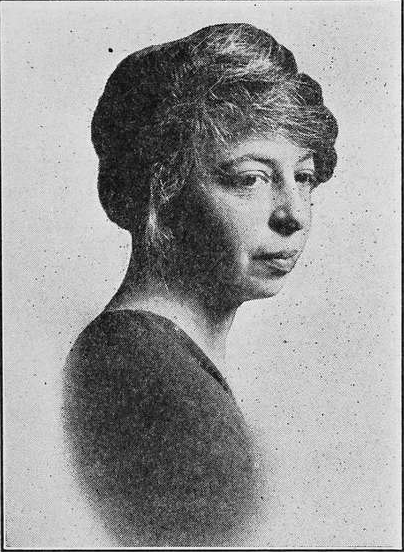Women’s History Month: Highlighting Playwright Angelina Weld Grimké
For our final Women’s History Month Blog Post, we’re spotlighting the extraordinary and historic playwright, poet, and journalist Angelina Weld Grimké. Grimké was born in 1880 in Boston to a white mother and a half-white father. Her father, Archibald Grimké, was a lawyer, and the second Black student to graduate from Harvard Law, where Grimké herself often took classes. Due to Gimké being mixed race, much of her work centered on the topic of race, lynching, and being Black in America. Grimké spent the beginning of her life with her mother, Sarah, before being sent to live with her father at the age of seven.
Much of her family were either perpetrators or victims of slavery, but many of her family members on her father’s side were abolitionists who relocated to the North. In fact, she was named after her aunt who was an abolitionist and women’s rights activist. She eventually moved in with her aunt and uncle, a mixed-raced couple who resided in Washington, D.C. Grimké taught at distinguished Black schools in D.C. such as the Armstrong Manual Training School (now Friendship Public Charter School) and Dunbar High School.
Grimké’s writing consisted of poems, short stories, and essays that were published in several acclaimed publications. She worked alongside prominent figures in the NAACP and throughout the Harlem Renaissance such as W.E.B. DuBois and Georgia Douglas Johnson respectively. Her play, Rachel, was a three-act play written for the NAACP as a response to the release of the horrendous film, The Birth of a Nation. Rachel, which featured an all-Black cast, was produced in D.C. in 1916 and in New York the following year. It was one of the first plays written by a Black woman to be performed and caused a huge reaction from audiences. Other plays of hers include Mara, another anti-lynching play.
Grimké wrote a plethora of poems including The Eyes of my Regret, The Black Finger, Fragment, Trees, At April, A Winter Twilight, For the Candle-Light,and Hushed by the Hands of Sleep. She has many more poems in her collection as well as short stories.
Grimké’s personal life was somewhat sorrowful as she felt suppressed in her sexuality. It is said that she was in love with another woman, but her father disapproved, and she spent much of her life unhappy and alone, much of which is reflected in her work. Grimké eventually moved to New York City after the passing of her father where she resided until her death.


